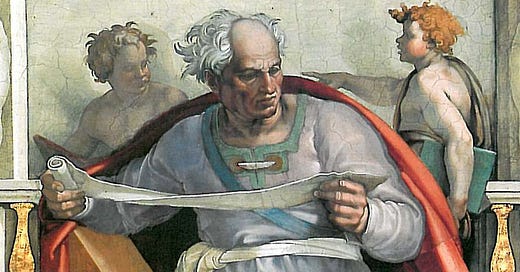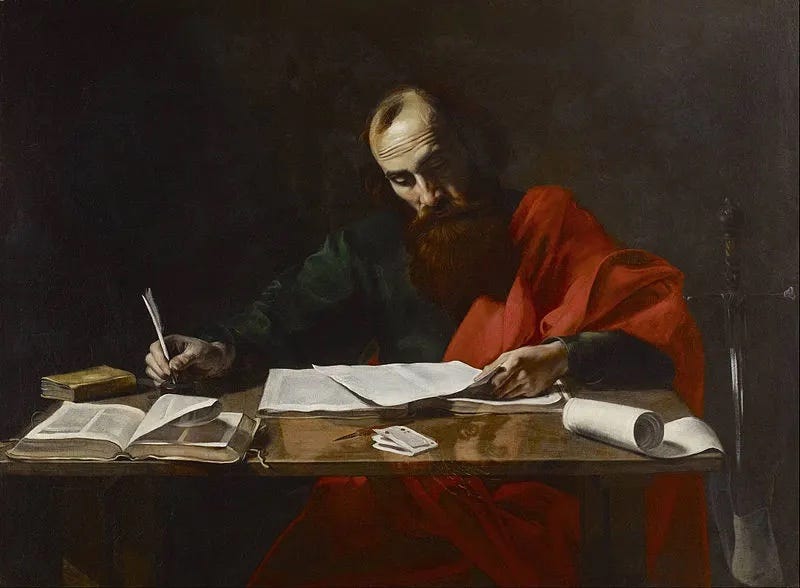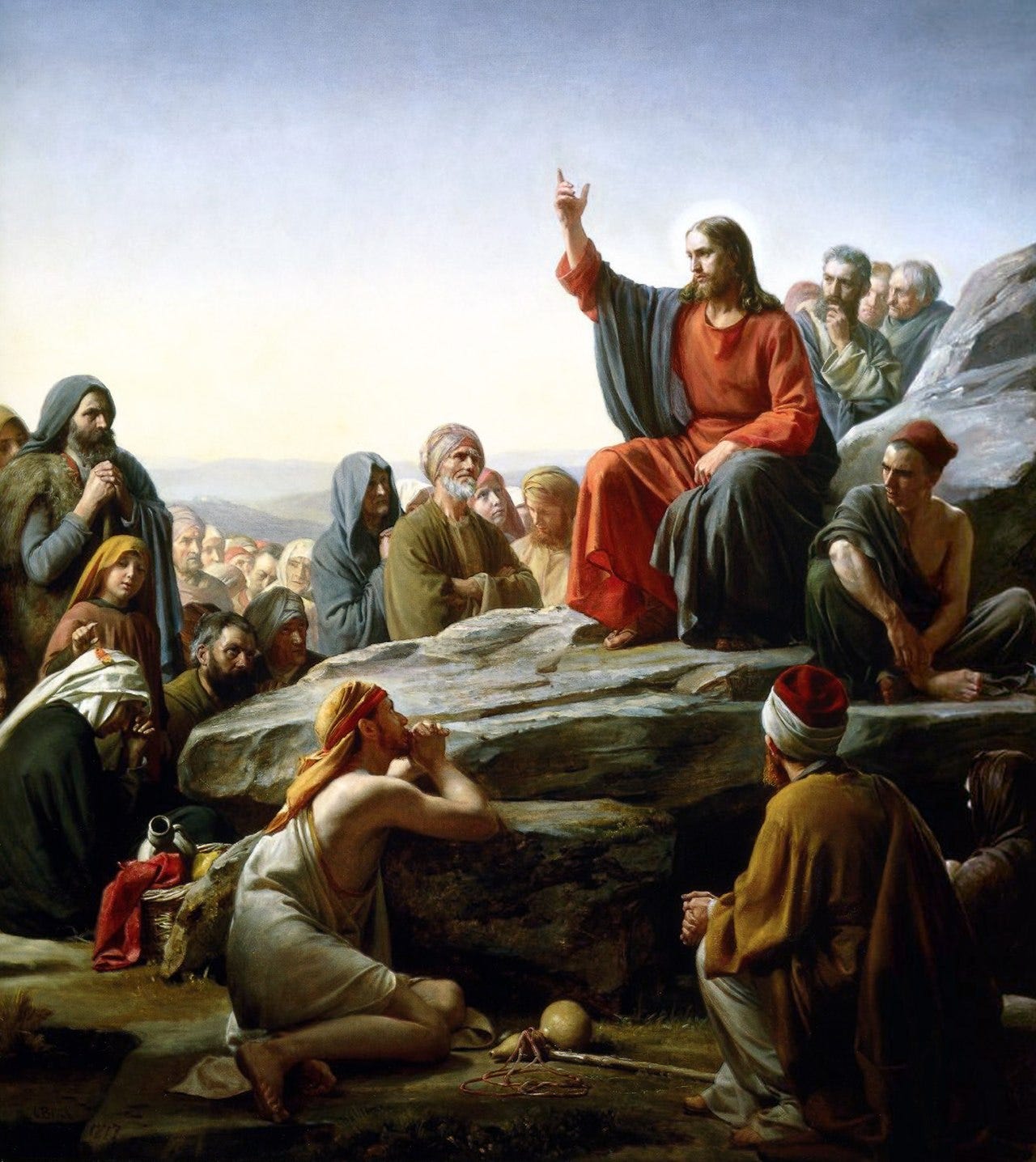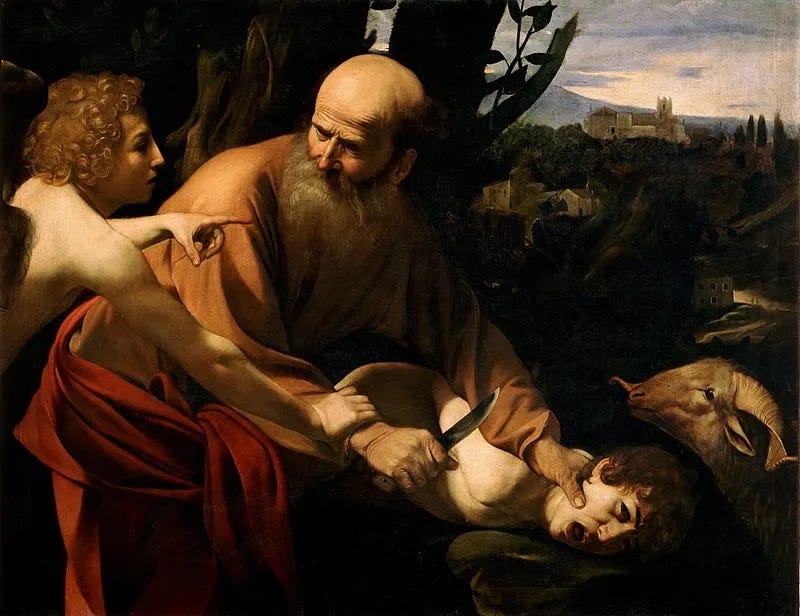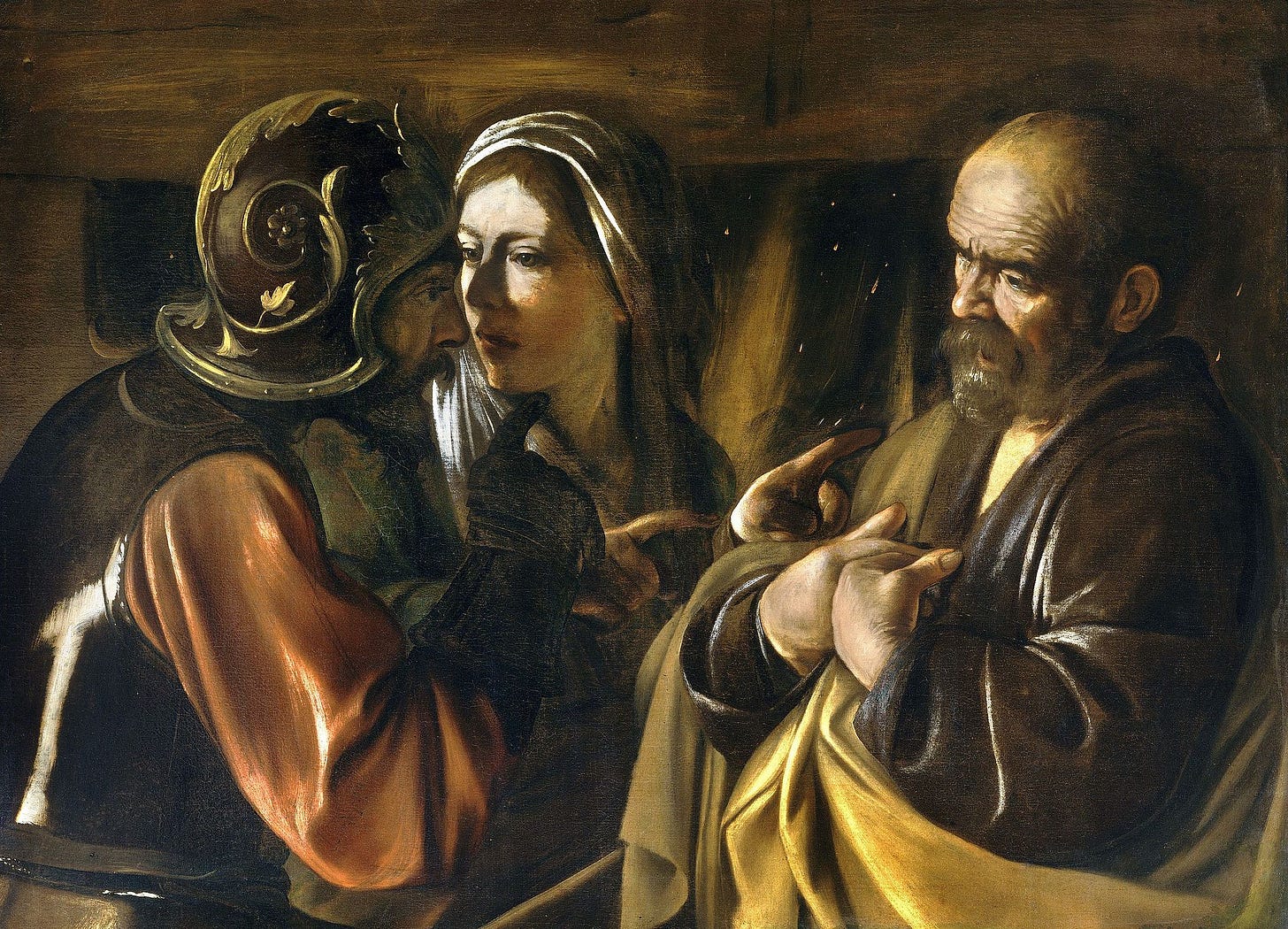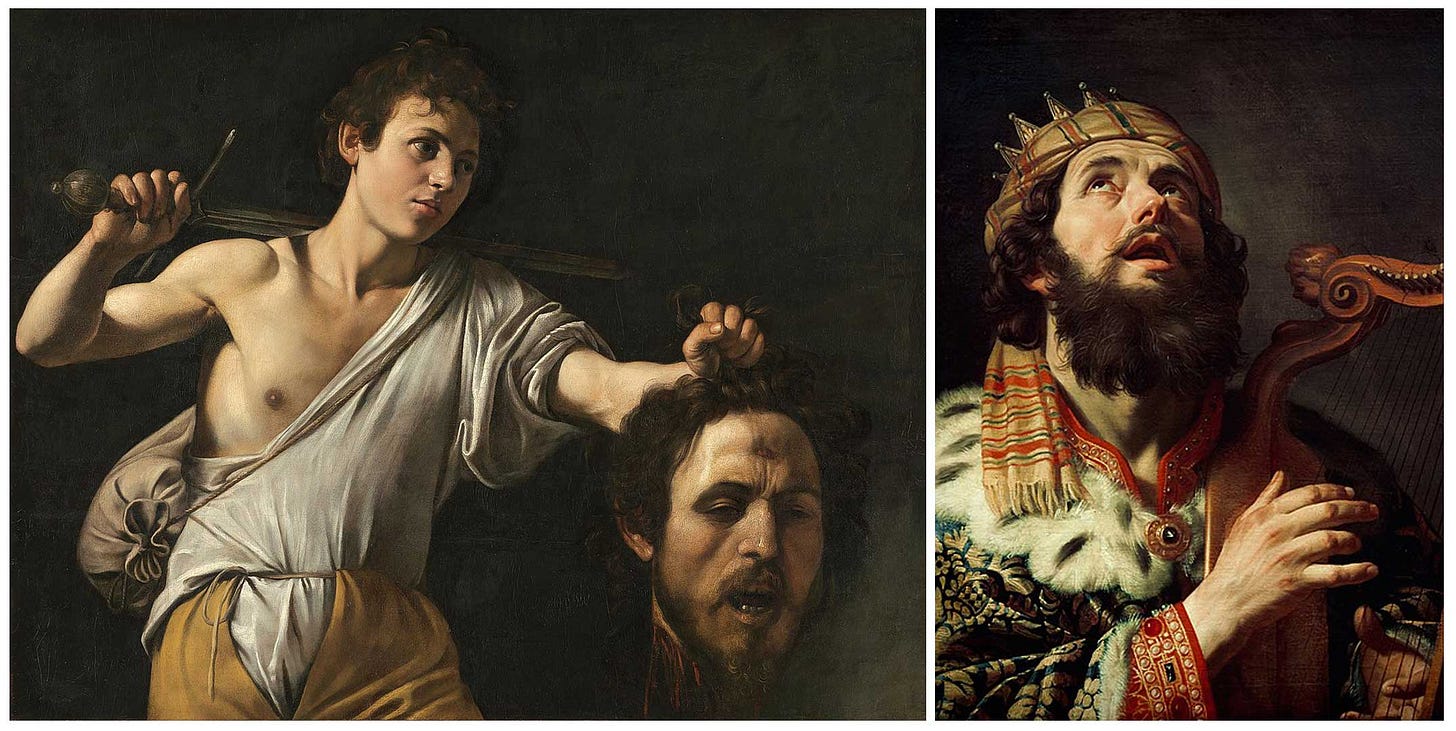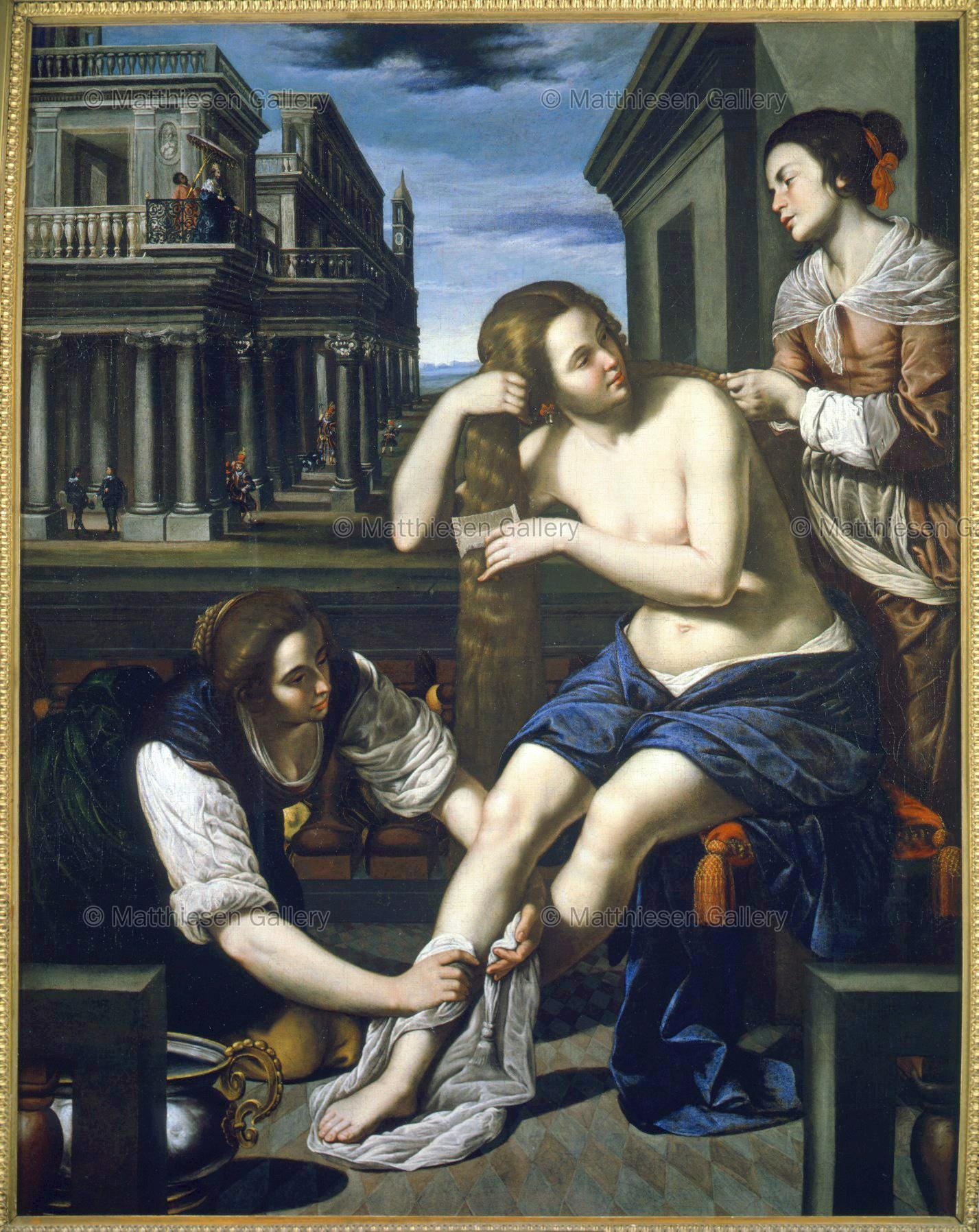LET YOUR HEARTS BE BROKEN - a Lenten Refrain by Joan Foo Mahony in Kuala Lumpur
Smitten By Faith Issue # 00058 25th February 2023
“… Come back to me with all your heart….
Let your hearts be broken; not your garments torn.”
(Joel 2:12-18)
For Christians around the world, ‘Ash Wednesday’ on 22nd February 2023 marked the beginning of a 40 day Lenten journey. This reading above is from the Prophet Joel who was one of the twelve minor prophets in the Old Testament and author of the ‘Book of Joel’ in which Joel speaks about the insidious sins of mankind and how notwithstanding this, there can be ultimate deliverance by God.
The Prophet Joel ; Fresco painted by Michelangelo; Sistine Chapel, Vatican City
So Joel asks us to let our broken hearts show our sorrow because merely tearing our clothes is not enough. He exhorts us to come back to God by changing our lives. Don't tear your clothing in grief – you need to tear out your heart instead. It’s a tremendously powerful message to begin Lent, perhaps the most solemn religious observance in the Christian liturgical calendar which commemorates the 40 days when Jesus Christ spent fasting in the desert as he prepared for what he knows will be his own horrific crucifixion and death.
THE WORLD IS FULL OF BROKEN THINGS
Last week, I wrote about the Apostle Paul as the world’s greatest missionary. Today, you see another dimension of Paul - Paul as a broken man. He bore and suffered unbearable physical hardships and torture; there was also terrible verbal abuse hurled at him when he preached. But Paul was not a defeated person. Far from it. In fact, he accepted his physical ‘brokenness’ with much clarity and grace, distinguishing the ‘outer man’ with his strong faith and inner resilience.
In 2 Corinthians 4:16 Paul wrote, “We do not lose heart, but though our outer man is decaying, yet our inner man is being renewed day by day."
And, in 2 Corinthians 12:9 Paul writes, "My grace is sufficient for you, for my strength is made perfect in weakness. Therefore most gladly I will rather boast in my infirmities, that the power of Christ may rest upon me.”
Saint Paul writing his Epistles; Painting by Valentin de Boulogne 1591-1632, Museum of Fine Arts. Houston
Paul knew and accepted that God desired to break his ego and pride but not his spirit. Paul’s clearly saw his own weaknesses and completely trusted and surrendered to the will of God.
MEEKNESS, DOCILITY, SINNERS AND SUFFERING
In Matthew 5:3, Jesus said, “Blessed are the poor in spirit for theirs is the Kingdom of Heaven. ”
And in Matthew 5:5 Jesus also said, “Blessed are the meek for they will inherit the Earth."
Sermon on the Mount; Painting by Carl Bloch 1877
Here, Jesus was referring to the “broken ones,” those who are spiritually bereft. A spiritual poverty which enables and opens the eyes of the broken ones to acknowledge not only the presence of God but their absolute need of God. In his Sermon on the Mount, Jesus teaches that brokenness also brings blessings and he will give them rest from their struggles.
"Take my yoke upon you, and learn of me; for I am meek and lowly in heart: and ye shall find rest unto your souls."
Matthew 11:29
The above quotations from the Gospel of Matthew are all from the ‘Beatitudes’ at the ‘Sermon on the Mount’ – perhaps the greatest sermon ever preached by Jesus Christ. The Beatitudes are the ‘Blessings’ ( Matthew’s Gospel mentions eight of them ) which all begin with the words: “Blessed are ….” when Jesus enumerates each category of people who were bound to receive God’s blessing and enter the “Kingdom of Heaven.”
This spirit of brokenness necessitates suffering, meekness and docility of spirit. We are all sinners and we too are broken; crushed by our sins – if we admit this. Money, position, pride and ego will not bring us closer to God. Remember that Jesus of Nazareth was born into a family of humble beginnings; Joseph was a carpenter. The meek, docile and repentant sinners know that they can offer God only their humility and love; they have nothing else to offer. But this moment of repentance is precious. Because they turn to God - wholly and humbly; and in return they receive the fullness of His grace and mercy.
"[ Jesus ] must become greater and greater, and I must become less and less.”
John the Baptist
How can we make ourselves smaller so that God can do great things through us?
We see from the Bible that God has indeed lifted ‘broken’ people to do great things.
Look at Abraham who was already very old when God chose him to found the Jewish nation; Paul who was struck blind on the road to Damascus and become God’s missionary; and the faithful Apostle Peter who denied Jesus not once but thrice; and yet was called to be the ‘rock’ on whom God built his church.
Abraham and the near Sacrifice of Isaac; a wonderful oil on canvas by the incredible Italian painter, Caravaggio
Denial of Saint Peter; another wonderful oil on canvas ( 1610) by Caravaggio ; Metropolitan Museum of Art, New York.)
Jesus said that if we wish to enter the gates of Heaven, we need to suffer. If we wish to find God; then we need to find Him in our suffering.
REPENTANCE
Repentance is a BLESSING ; not a punishment. The words of the Prophet Joel show us that saying ‘sorry’ is not enough; we need to have true repentance and sincere remorse.
Left : David with the head of Goliath; Caravaggio 1607, Kunst Historisches Museum, Vienna
Right : King David playing the Harp 1622 ; by Gerard van Horthorst
The story of the biblical King David of ‘the legendary David and Goliath’ – the shepherd boy who slayed the giant Goliath with a mere slingshot and became the greatest King of Israel is well-known. Not so familiar is the terrible sin which David committed when as King, he committed adultery with the beautiful Bathsheba, the wife of his General Uriah. In his shameful desire for Bathsheba, David then sends Uriah off to the battlefront where he is killed. David had been chosen by God; anointed by God to lead his people. Yet, he had blatantly abused his power. The appalling personal tragedies that then befell David in quick succession - including at least four deaths of his beloved family members- showed the severe consequences of sin. David was thrown into an abyss and in his anguished grief, his absolute contrition and full remorse for what he had done was sincere. David accepted that he had to suffer the full consequences of his wicked and immoral sinful actions; and he endured them all – one at a time. Until one day, God showed David and Bathsheba mercy and forgave them. Their son Solomon known for his great wisdom was to become a great King of Israel and it was Solomon who built the first Temple in Jerusalem.
Bathsheba having her bath with David looking on from the balcony; Painting by Artemisia Gentileschi 1634 – oil on canvas - Baroque Neopolitan School
Today, at Lent, this same sinner King David is remembered for his Penitential Psalm (Psalm 51) when David confronts, repents and confesses his sins; and his Psalm of Thanksgiving (Psalm 32) when David expresses his unimaginable joy that God has accepted his repentance and forgiven him.
Psalm 51 :
“Have mercy on me, O God, according to thy loving kindness, according to the multitude of thy tender mercies blot out my transgressions.
Wash me thoroughly from my iniquity and cleanse me from my sin.
….For I acknowledge my transgressions and my sin is ever before me.”
……Create in me a clean heart, O God and renew a right spirit within me.
Cast me not away from thy presence and take not the Holy spirit from me….”
David’s genuine repentance leads to undisguised joy as you can see below when he offers Psalm 32 :
Psalm 32
“Blessed is the one whose transgressions are forgiven, whose sins are covered.
Blessed is the one whose sin the Lord does not count against them and in whose spirit there is no deceit.”
____________________________________________________________________________
Editor’s Note :
Dear Reader, thank you for reading this edition of SMITTEN BY FAITH.
ALL articles in every issue are FREE.
For those of you who upgraded to be a PAID Subscribers for US$ 60.00 a year, thank you so much ! All proceeds go to the Regina Apostolorum Foundation to promote Catholic higher education.
PAID Subscribers will also receive via Bitly link ( see the posts pinned above available only to paid subscribers ) the digital copy of the recent book by Joan Foo Mahony, ‘LATE HAVE I LOVED THEE’ and THE COLLECTED ARTICLES, VOLUME ONE 2021 and the recent VOLUME TWO 2022 of Smitten By Faith, a DIGITAL COMPILATION of all the previous years’ 2021 and 2022 articles.
Paid Subscribers will also soon receive the Bitly link to full contents of ALL the Letters From Yangchow : Letters I to III.
For paid subscribers, simply click on the relevant Bitly links to receive the publications.
Paid Subscribers will also receive additional exclusive material from time to time.

